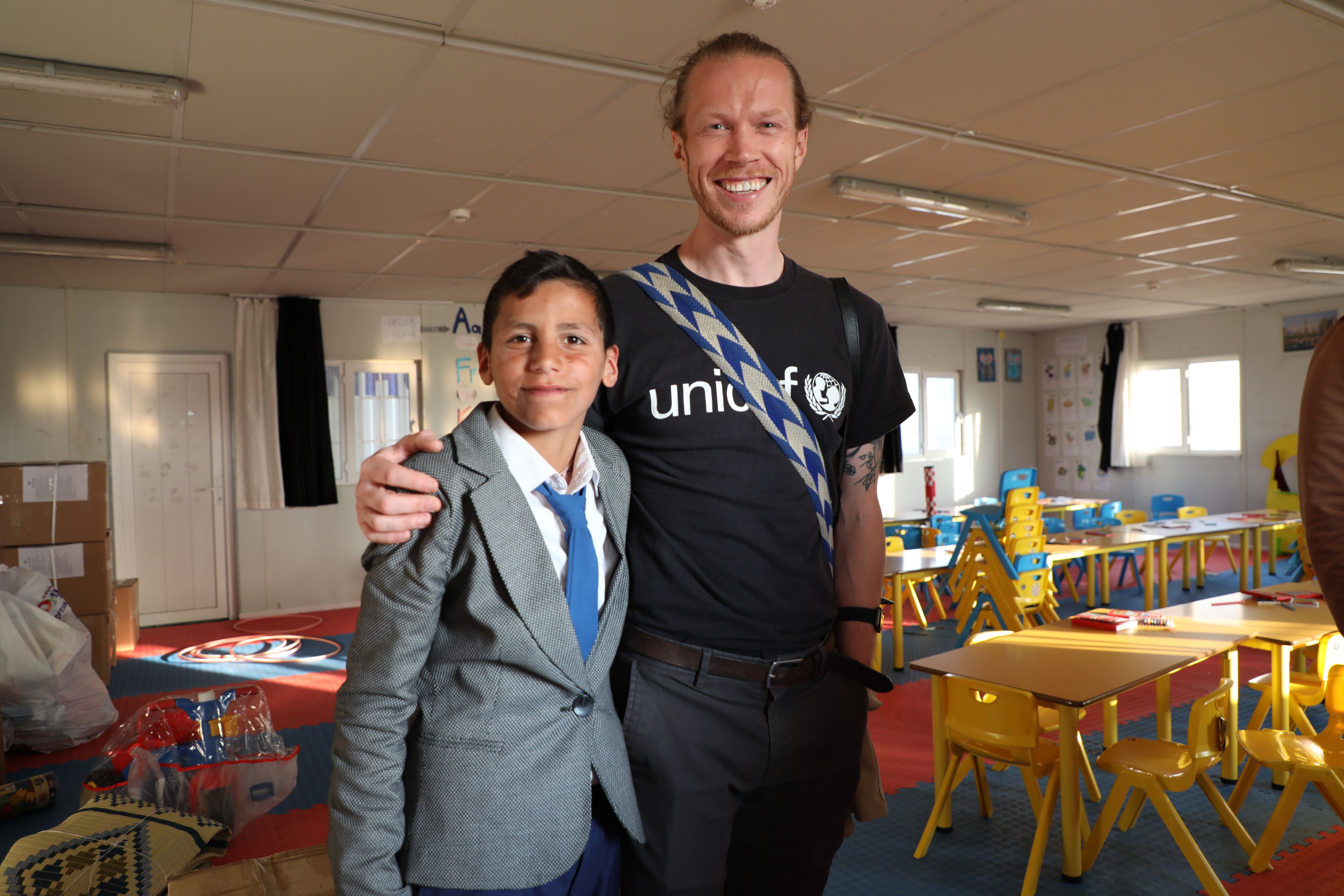British aid worker ‘privileged’ to help children affected by Turkey-Syria quake
Unicef worker Joe English has been helping children in Syria and Turkey affected by the earthquake with psychosocial aid.

A British aid worker providing relief for children affected by earthquakes in Turkey and Syria one month ago has said he feels “privileged” to be part of the “exhausting” work, but fears for the long-term mental health of young people in the region.
Unicef emergency communication specialist Joe English, who lives in New York but is originally from West London, has been working with children processing the shock of losing their homes after a 7.8 magnitude earthquake struck areas of Turkey and Syria on February 6.
The 35-year-old arrived in Gaziantep, Turkey after the first earthquake on February 16, and after the second major earthquake on February 21, he went to work in Northern Syria near the city of A’zaz.
Over two-and-a-half million children need humanitarian assistance in Turkey alone according to Unicef, and Mr English said it has been “incredibly difficult” and “exhausting” work but he feels privileged to be helping people whose lives have changed forever.
“It’s always hard being away from friends and family, I know it’s hard for them sometimes when I’m going into these difficult situations,” he told the PA news agency.
“But for me, I can leave, I can get on a plane at the end of this trip and I can go back to London, and many of these families (in Syria and Turkey) cannot; this is their life.
“So as much as it can be exhausting, I feel privileged to see this work and I feel privileged to be a part of this work.”
Unicef workers like Mr English have been providing children with safe drinking water and psychosocial support – encouraging them to play and “be a child again”.
He said the distress caused by the disaster, particularly followed by a second earthquake and subsequent aftershocks, could have long-term impacts on the mental health of children living in the area.
“These children were already distressed, in shock, many of them just trying to process the experience that they’ve been through, and then they have to go through that same experience – again.
“So we’re doing what we can to reach children with psychosocial support, to give them safe spaces to play, to colour in and be with their friends, just to be a child again.
“So many families just started going back to their homes, to try and start salvaging what they could start rebuilding, repairing.
“This secondary quake, it was just a painful reminder of that experience of that trauma.
“We continue to have thousands and thousands of aftershocks, many of them are relatively minor, but people are waiting, they aren’t convinced that there may not be another big one – and for children seeing that perpetual state of unease and distress, it can have long-term implications for their mental health.”
Mr English said some of his colleagues in Turkey had to sleep in their offices for two weeks after the first earthquake struck.
“It’s impossible for this not to affect you … many of my colleagues have family here, elderly parents, children,” he said.
Mr English also spoke about the Syrian children who have been experiencing constant traumatic events over recent years as a result of the Syrian civil war which began in 2011.
“The sad reality is that children in north-west Syria, many of their families are already displaced, tents are almost safer than buildings in these kinds of circumstances, these children have spent years living in these tents – it’s been almost 12 long years of conflict,” he said.
“I was speaking to an 11-year-old yesterday, his entire life has been set against this backdrop of conflict and displacement.
“And so you just feel, again, they’re going through this heartbreak, again, they’re going through this trauma and how many more times are they going to have to experience this utter heartbreak before they can begin to rebuild their lives.”
He added that local fundraising efforts in the UK are critical for Unicef to continue its work.
“The funds that are raised by the diaspora, by the Syrian community in the UK, by the Turkish community – it’s incredible,” he said.
“I see where these donations go, and they are providing the basics like they’re providing drinking water to kids, they’re providing sanitation services, blankets to families who’ve got nowhere to go.”
To find out more about Unicef’s work in Turkey and Syria, go to: www.unicef.uk/earthquakenews